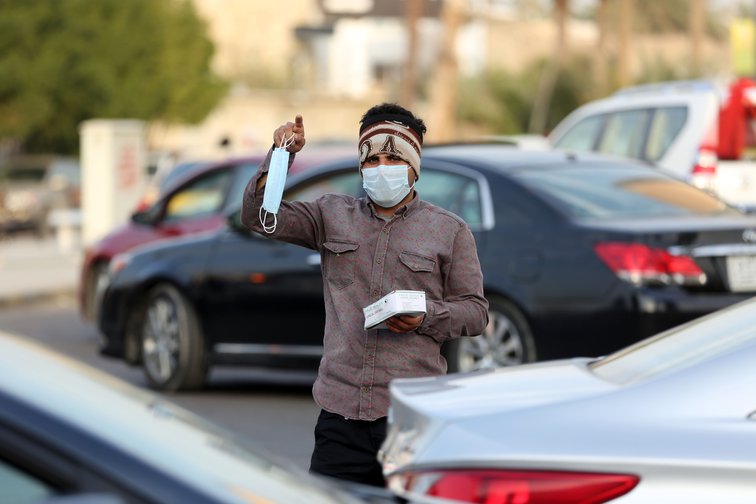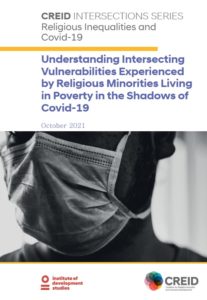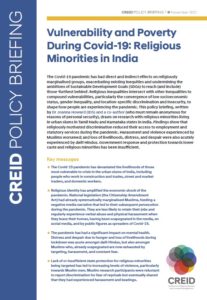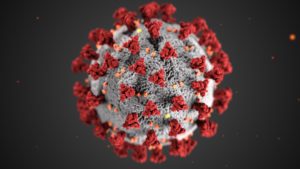It is our moral obligation to ensure everyone receives aid according to needs and regardless of their status.
Claire Thomas, Minority Rights Group
Time and time again, when emergencies occur, minorities and indigenous peoples are at risk of being excluded from life-saving humanitarian interventions. The current COVID-19 pandemic is no different and it is our moral obligation to ensure national responses leave no one behind.
Aid is supposed to be neutral, but we know this is not always the case. In a local situation where some are powerful and count, while others are powerless and don’t count, not everyone will receive aid according to their need.

For more than 50 years, we have documented the exclusion of minorities and indigenous peoples from responses to conflict and post-conflict situations (Roma in the Balkans, minority clan members in Somalia, and Muhamasheen in the current conflict in Yemen), to natural disasters (Dalits in India after the 2004 Tsunami). With today’s global emergency, we have a duty to address the issue of exclusion head-on, and ensure all responses to COVID-19 are inclusive of the world’s most vulnerable people.
We therefore urge governments and healthcare providers to consider the following four points in their COVID-19 responses:
- Lack of documentation should in no case be a barrier to the highest quality care.
Minorities and indigenous people are less likely to carry an ID document (for example, Roma in Ukraine) and their citizenship may be contested or challenged (for example the Maragoli community in Uganda). If an ID card is needed to access health care, this can put minority and indigenous communities at a major disadvantage.
- All COVID-19 care should be provided free of charge to those who cannot afford to pay.
Many minorities and indigenous communities are poorer than majority communities in the same country. We know that indigenous women access maternal health care less than other women and some of these women have told us that cost is a factor in this. This applies, for example to some women from the Chin community in Myanmar.
- Information about prevention and ways to seek help in case of symptoms should be made available in as many languages as possible.
Translators without Borders has documented many instances of aid being provided in languages that the intended recipients do not speak well. Radio broadcasts in various languages, including minority languages, may be the best option.
- Nutrition and access to food should be a priority and should not depend on economic status.
Minority communities and indigenous peoples are generally poorer, and their nutritional status may be worse. They are likely to have fewer resources to buy and store food, or to pay for medicines or treatment. They are unlikely to have reserves of either cash or food to sustain themselves whilst they may be unable to work. Batwa community members in Rwanda, for example, have told us they’re facing the prospect of living without an income since their traditional means of work (involving travel to other’s land) is no longer viable or available. Many minorities and indigenous people are more likely to migrate regularly, meaning they have no regular clinic and that government warnings to stay at home are not meaningful to them.
Particularly in contexts where competition for health services or essential supplies becomes high, minorities who have lower social capital and are generally poorer and less represented in decision making processes are vulnerable to being pushed to the back of the queue, or otherwise face violence or discrimination when accessing aid. In a recent survey, those reporting on behalf of marginalised communities in Somalia saw almost double the level of violence against those accessing aid (25% of respondents) as those reporting on behalf of majority communities.
Governments and healthcare providers need to be aware of all the above factors and ensure that services reach all those who need them regardless of their location, language, ethnicity, religion or caste.
These problems can be overcome, but we must first admit that they exist. When those providing aid are aware of and sensitive to existing power relations in communities they serve, reaching everyone according to their need is perfectly possible.
We cannot let silent discrimination and outright racism enter our response to this crisis. Let’s ensure that our response is aware of religion, ethnicity, language and all other elements of the identity of those in need, in ways that ensure everyone is supported throughout this challenging time.
This analysis was originally published by TRF News



